CLAT 2027: Exam Date, Preparation, Registration (All Details)
Book Free Counselling or Apply for CLAT Scholarship!
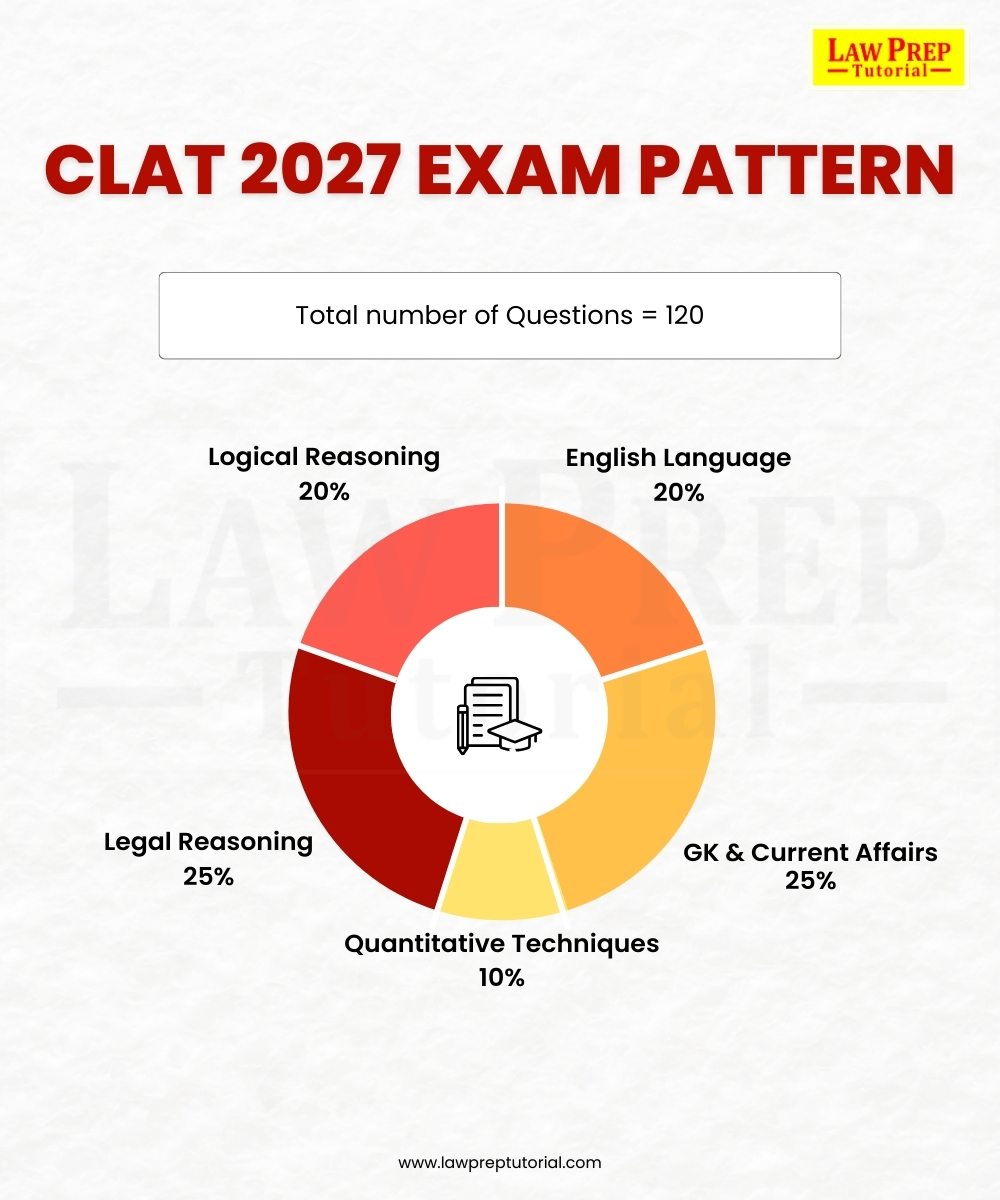
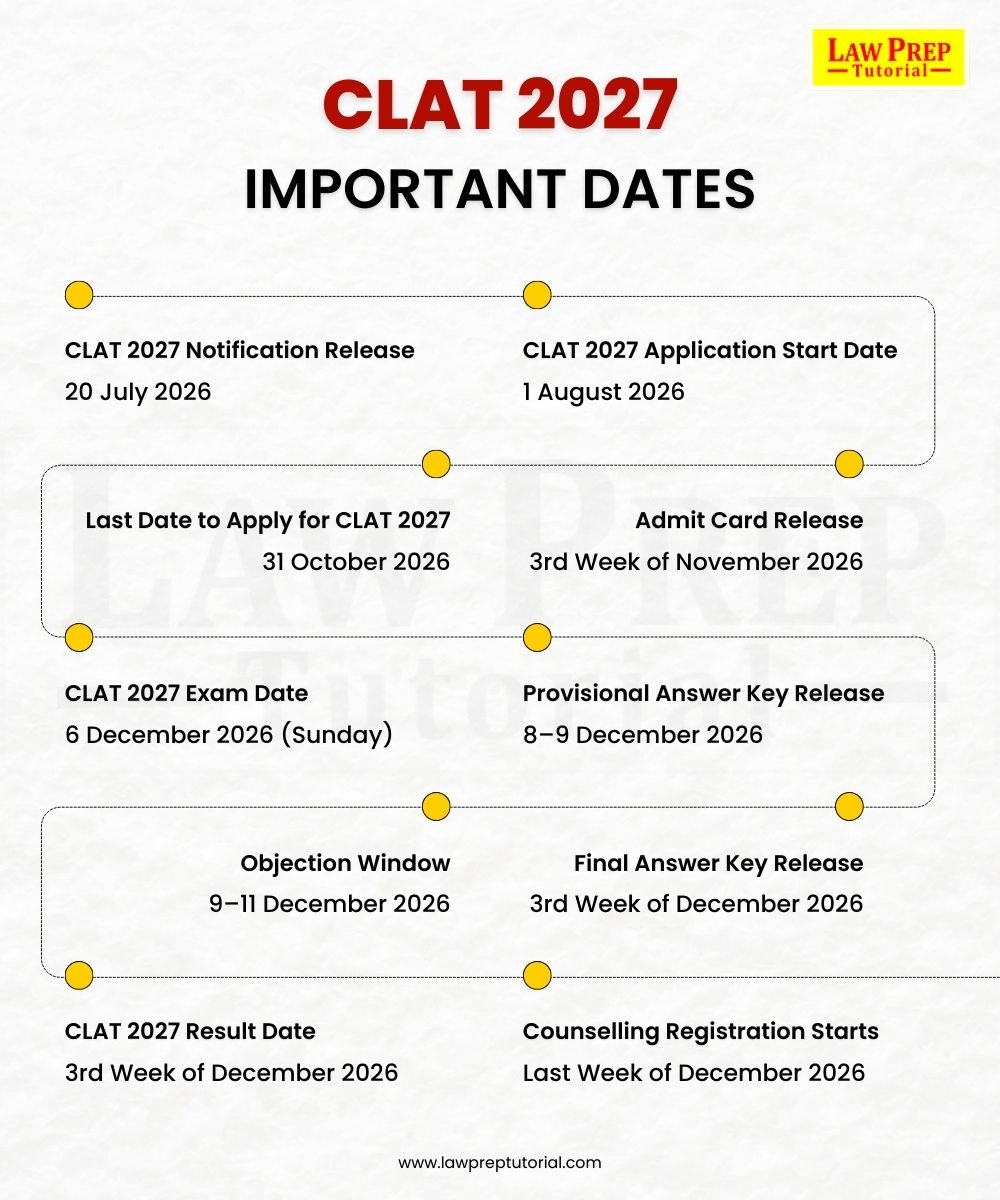
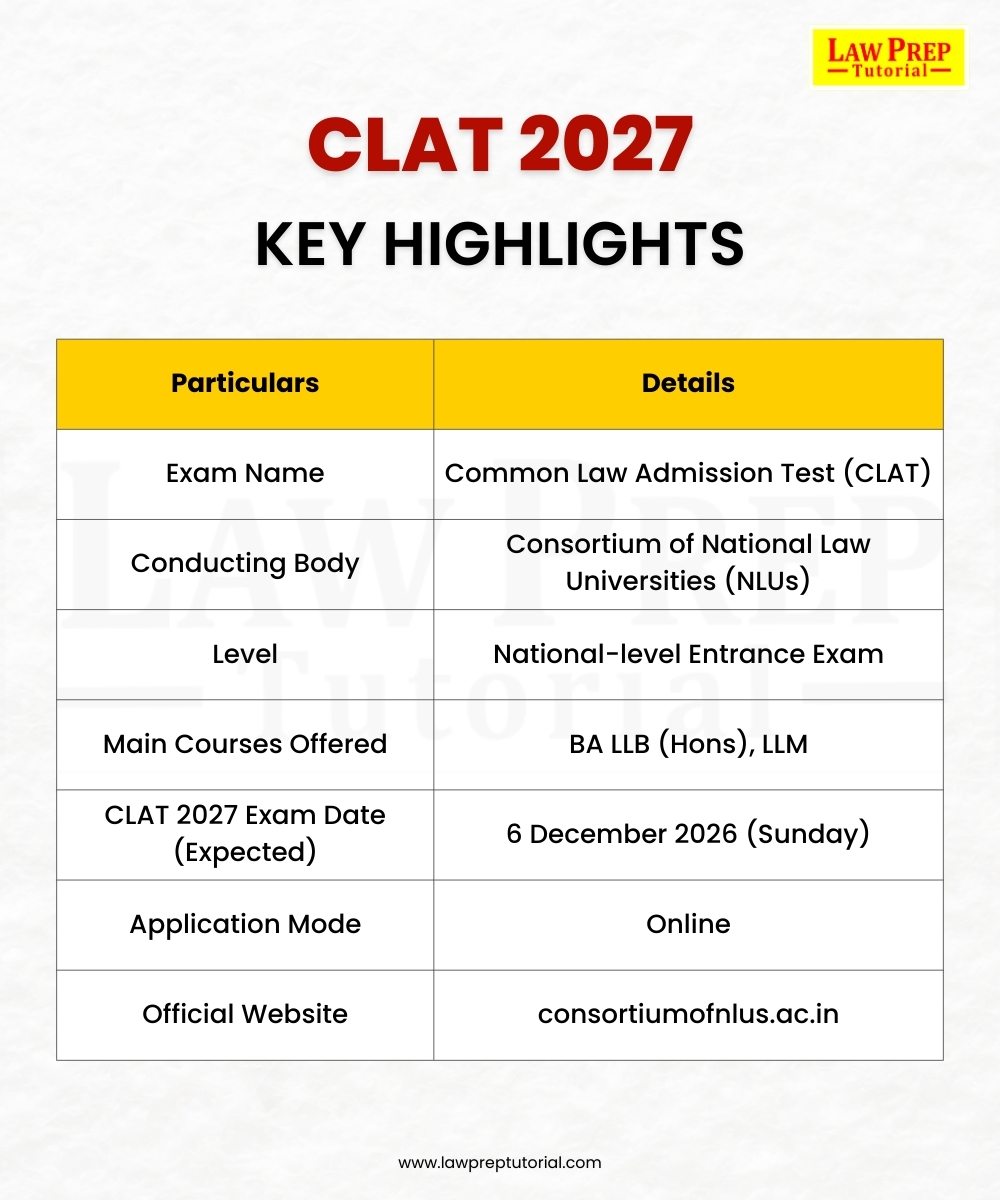
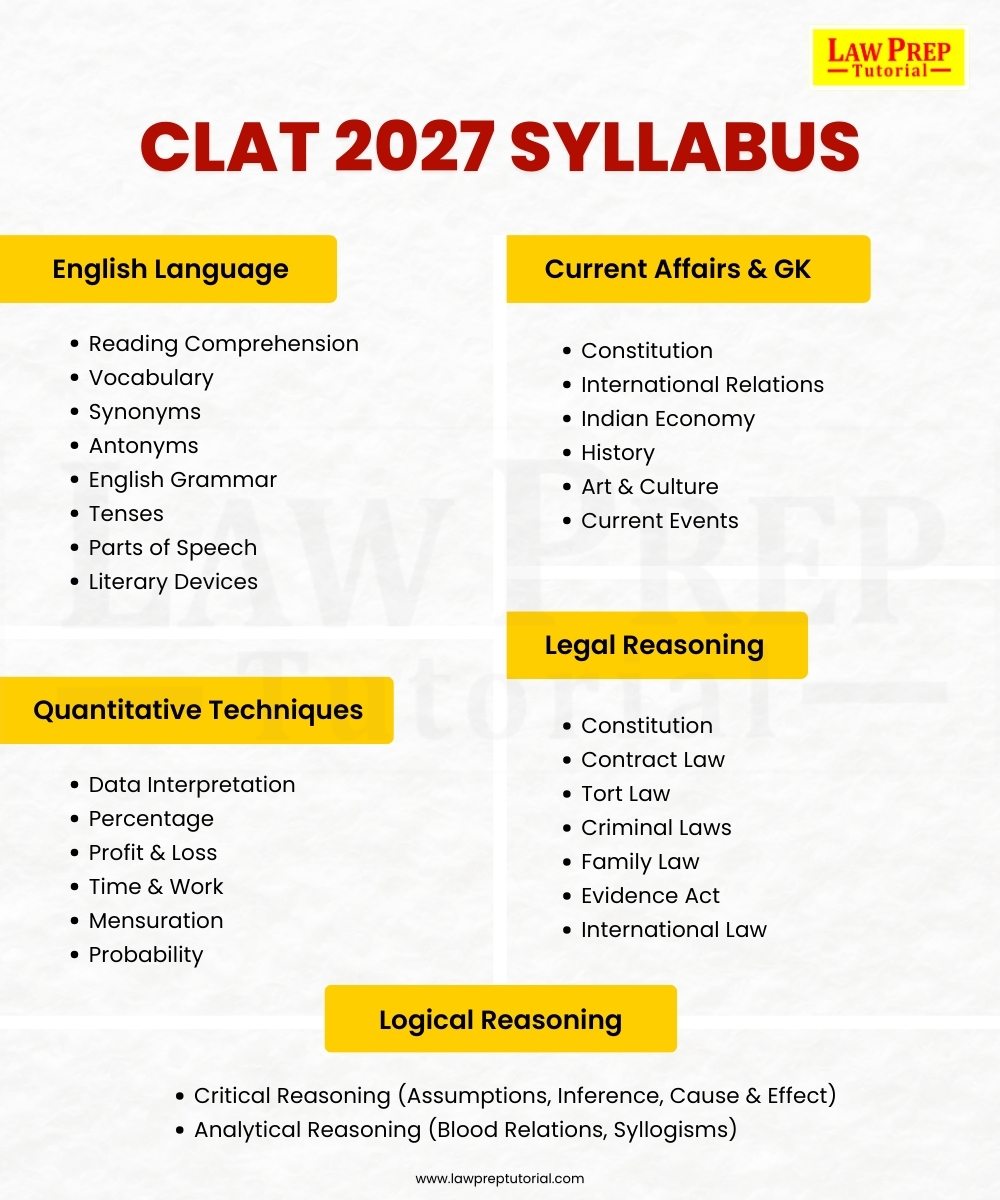
Latest Update: Expert Committee to Review CLAT 2027
1. Purpose of the Committee
- The decision was taken during the 4th Advisory Board Meeting chaired by Justice Indu Malhotra (Retd.).
- The goal is to ensure that the CLAT exam pattern, question quality, and syllabus reflect modern standards of legal education and international benchmarks.
2. Members of Committee
- Prof. Dev Saif Gangjee – University of Oxford (Co-Chair)
- Prof. Tarunabh Khaitan – London School of Economics (Co-Chair)
- Prof. Shyamkrishna Balganesh – Columbia Law School
- Prof. Surabhi Ranganathan – University of Cambridge
3. Key Focus Areas
- Question Quality: Evaluate clarity, fairness, and analytical depth of questions.
- Exam Structure: Review the overall paper format and section-wise balance.
- Syllabus Revision: Suggest changes in line with current legal education and global standards.
- Comparative Review: Study international tests such as LSAT (US) and LNAT (UK) for relevant insights.
4. Expected Impact on CLAT 2027
- Potential restructuring of the question paper for better analytical balance.
- Updates to the CLAT 2027 syllabus to enhance reading comprehension and reasoning depth.
- Improved transparency and evaluation quality to align CLAT with top international standards.
CLAT 2027: Key Highlights
| Particulars | Details |
| Exam Name | Common Law Admission Test (CLAT) |
| Conducting Body | Consortium of National Law Universities (NLUs) |
| Level | National-level Entrance Exam |
| Main Courses Offered | BA LLB (Hons), LLM |
| CLAT 2027 Exam Date (Expected) | 6 December 2026 (Sunday) |
| Application Mode | Online |
| Official Website | consortiumofnlus.ac.in |
CLAT 2027 Exam Date
The CLAT 2027 exam date is expected to be 6 December 2026 (Sunday). The registration window is likely to open on 1 August 2026, and the official notification will be released by the Consortium of NLUs in July 2026.
| Event | Tentative Date |
|---|---|
| CLAT 2027 Notification Release | 20 July 2026 |
| CLAT 2027 Application Start Date | 1 August 2026 |
| Last Date to Apply for CLAT 2027 | 31 October 2026 |
| Admit Card Release | 3rd Week of November 2026 |
| CLAT 2027 Exam Date | 6 December 2026 (Sunday) |
| Provisional Answer Key Release | 8–9 December 2026 |
| Objection Window | 9–11 December 2026 |
| Final Answer Key Release | 3rd Week of December 2026 |
| CLAT 2027 Result Date | 3rd Week of December 2026 |
| Counselling Registration Starts | Last Week of December 2026 |
Get FREE Coaching for CLAT 2027!
CLAT 2027 Eligibility Criteria
| Category | CLAT UG | CLAT PG |
| Educational Qualification | 10+2 or equivalent from a recognized board | LLB degree (3-year or 5-year) from a recognized university |
| Minimum Marks (General/OBC) | 45% marks | 50% marks |
| Minimum Marks (SC/ST) | 40% marks | 45% marks |
| CLAT Age Limit | No upper age limit | No upper age limit |
| Appearing Candidates | Eligible if appearing in 2027 or result awaited | Eligible if final year exam is in 2027 or result awaited |
- There is no upper age limit for both UG and PG programs.
- Candidates awaiting results or appearing in qualifying exams in 2027 are also eligible to apply.
- Ensure all educational qualifications are from recognized boards or universities.
- Candidates must upload valid mark sheets or provisional certificates during the counselling process once CLAT results are declared.
CLAT 2027 Exam Pattern
Section-wise Weightage of CLAT 2027
| Section | Number of Questions | Weightage (Approx.) |
| English Language | 22–26 | 20% |
| Current Affairs including GK | 28–32 | 25% |
| Legal Reasoning | 28–32 | 25% |
| Logical Reasoning | 22–26 | 20% |
| Quantitative Techniques | 10–14 | 10% |
| Total | 120 Questions | 100% |
Other Key Details of CLAT 2027 Paper Pattern
| Parameter | Details |
| Exam Duration | 2 Hours (120 Minutes) |
| Marking Scheme | +1 for each correct answer |
| Negative Marking | −0.25 for each wrong answer |
| Total Marks | 120 |
| Type of Questions | Multiple Choice Questions (MCQs) |
| Mode of Exam | Offline (Pen and Paper) |
| Medium of Exam | English |
Book Free Counselling for CLAT 2027 Preparation!
Step 1: Visit the Official Website
Go to https://consortiumofnlus.ac.in and click on “CLAT 2027”. Then, select “Register” to begin the process.
Step 2: Register and Create Login Credentials
Enter your name, email ID, and mobile number to create anaccount. Verify the OTP sent to your number and log in.
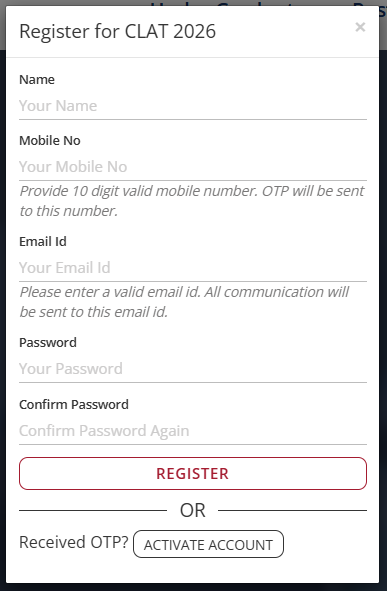
Step 3: Fill Personal and Category Details
Enter your name, date of birth, and category (General/SC/ST/OBC). Upload a recent passport-size photo and scanned signature as per format.
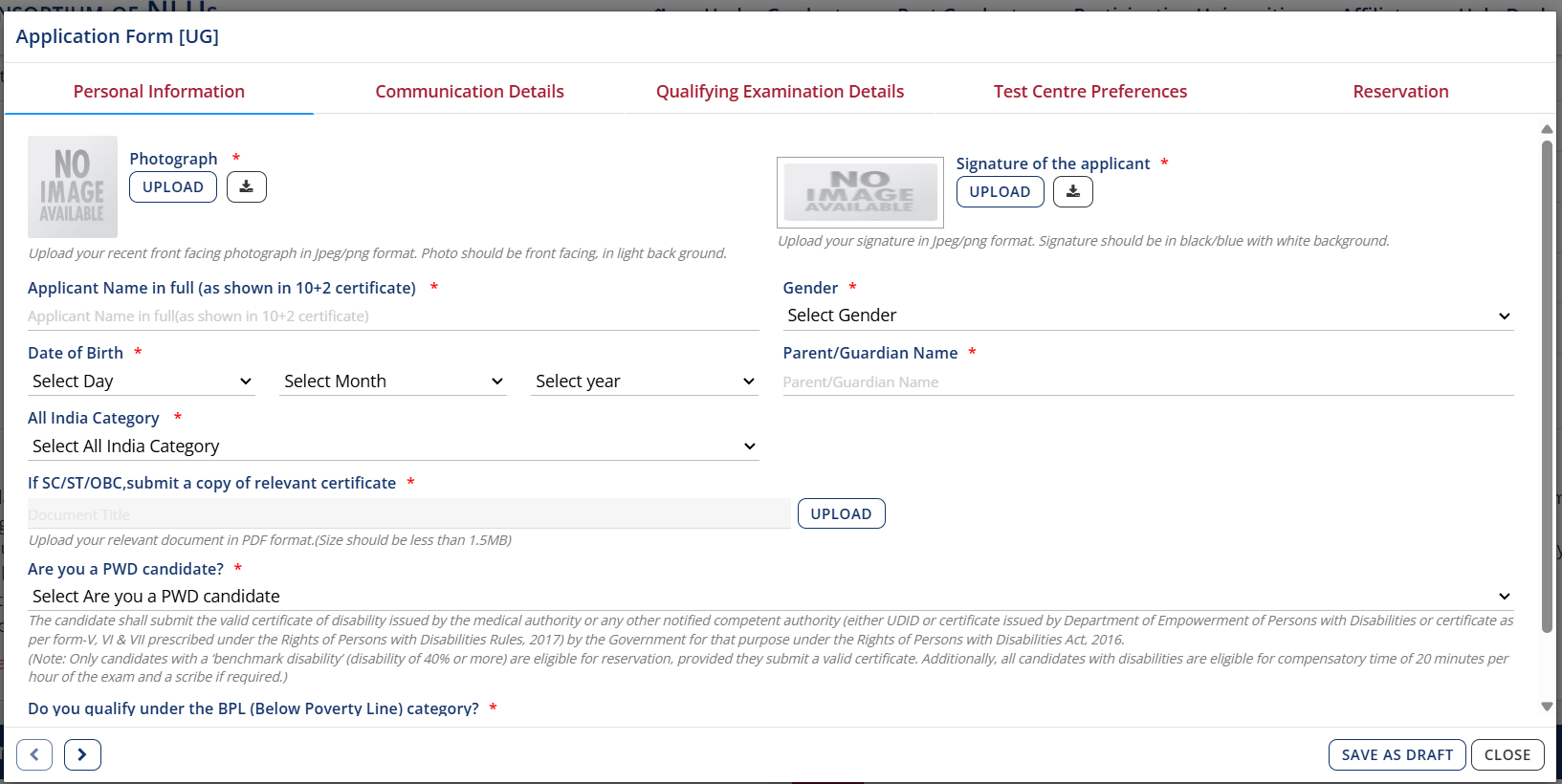
Step 4: Enter Communication Details
Step 5: Fill Qualifying Examination Details
Step 6: Choose Test Centre Preferences
Select three test cities in order of preference. The Consortium will allot your exam centre based on seat availability.
Check all CLAT 2027 exam centers:

Step 7: Upload Required Documents
Step 8: Pay Application Fee
Step 9: Submit and Save Confirmation
CLAT 2027 Registration Fees
| Category | Application Fee |
| General / OBC / PwD / NRI | ₹4,000 |
| SC / ST / BPL | ₹3,500 |
| Optional – Past Year Question Papers | ₹500 (additional) |
Documents Required for CLAT 2027 Registration
| Document | Requirement |
| Recent Passport Size Photograph | Colored, front-facing, clear background, JPEG format (100–500 KB) |
| Scanned Signature | On plain white paper, JPEG format (100–500 KB) |
| Class 10 Marksheet/Certificate | For proof of Date of Birth |
| Class 12 Marksheet | If passed; optional if appearing in 2027 |
| Category Certificate (SC/ST/OBC) | If applying under reserved category (PDF, up to 1.5 MB) |
| Domicile Certificate | If applying for domicile-based reservation (PDF, up to 1.5 MB) |
| PwD Certificate | If claiming reservation under Persons with Disabilities |
| NRI/NRI Sponsored Certificate | For NRI category applicants (if applicable) |
| LLB Degree/Final Year Certificate (PG Only) | Required for CLAT PG applicants to prove eligibility |
CLAT 2027 Syllabus
| Section | Key Topics |
| English Language |
|
| Current Affairs, including GK |
|
| Legal Reasoning |
|
| Logical Reasoning |
|
| Quantitative Techniques |
|
Get Up to 100% Scholarship on India's Best CLAT Coaching!
CLAT 2027 Exam: Difficulty Level (Expected)
| Section | Expected Difficulty Level | Key Insights |
| English Language | Moderate | Long comprehension passages with vocabulary and inference-based questions; strong reading speed is crucial. |
| Current Affairs including GK | Moderate | More conceptual and context-based questions instead of one-liners; focus on understanding news events. |
| Legal Reasoning | Moderate to Difficult | Passage-based questions testing legal logic and comprehension rather than prior knowledge; often the lengthiest section. |
| Logical Reasoning | Moderate | Mix of short and long arguments; focus on critical reasoning and identifying assumptions or conclusions. |
| Quantitative Techniques | Easy to Moderate | Straightforward questions from data interpretation and arithmetic; accuracy matters more than speed. |
CLAT 2027 Preparation Strategy
Follow these expert-recommended strategies to strengthen your CLAT 2027 preparation and build consistency across all sections.
Start Early and Build Daily Discipline
Begin your CLAT 2027 preparation at least a year in advance. Study 3–4 hours daily, revise weekly, and focus on building strong fundamentals in English, Legal Reasoning, and Current Affairs.
Enroll in Quality CLAT Coaching
Join a trusted CLAT online coaching program to get structured lessons, expert mentorship, and doubt-solving sessions. Guided preparation saves time and keeps your preparation on track.
Practice Regular CLAT Mock Tests
Take one CLAT mock test every week to simulate real exam conditions. Analyze your performance, identify weak areas, and track improvement through regular mock test practice.
Strengthen Reading and Comprehension Skills
Read newspapers, editorials, and legal articles daily. This improves vocabulary, critical thinking, and comprehension speed, essential skills for cracking comprehension-based CLAT 2027 questions.
Focus on Revision and Time Management
Revise every topic regularly and maintain short notes for last-minute review. Learn to balance speed and accuracy during CLAT mock tests to perform confidently on exam day.
CLAT 2027 Best Books and Study Material
Choosing the right books and resources is crucial for your CLAT 2027 preparation. Here are the most recommended books for CLAT preparation and CLAT study materials for each section, based on expert suggestions and topper preferences.
| Subject | Recommended Books / Material |
| English Language |
|
| Current Affairs & GK |
|
| Legal Reasoning |
|
| Logical Reasoning |
|
| Quantitative Techniques |
|
Get Expert CLAT Guidance for Free!
CLAT 2027 Mock Tests and Practice Papers
Regular practice through CLAT mock tests and CLAT previous year papers is one of the best ways to assess your preparation level and improve exam accuracy.
CLAT 2027 Mock Tests and Practice Papers
| Year | Download Link |
| CLAT 2026 Question Paper | Available after exam |
| CLAT 2025 Question Paper | PDF Link |
| CLAT 2024 Question Paper | PDF Link |
| CLAT 2023 Question Paper | PDF Link |
| CLAT 2022 Question Paper | PDF Link |
| CLAT 2021 Question Paper | PDF Link |
| CLAT 2020 Question Paper | PDF Link |
| CLAT 2019 Question Paper | PDF Link |
CLAT 2027 Mock Test Packages
| Mock Test Type | Mode |
| Free CLAT Mock Test PDF | Offline (PDF Download) |
| CLAT Ace | Online |
| CLAT Legal Reasoning Mock Test | Online |
| CLAT Logical Reasoning Test | Online |
| CLAT English Mock Test | Online |
CLAT 2027 Admit Card
- Candidate’s name and photograph
- Roll number and application number
- Exam date and time
- Test centre name and address
- Exam day instructions
CLAT 2027 Result
Follow these steps to access your CLAT 2027 scorecard:
- Visit the official website of the Consortium of NLUs.
- Click on “CLAT 2027 Result” on the homepage.
- Log in using your registered mobile number and password.
- The scorecard will appear on the screen showing your marks and All India Rank (AIR).
- Download and save it for future reference during counselling.
CLAT 2027 Result Calculation Process
- Each correct answer = +1 mark
- Each wrong answer = −0.25 mark
- Unattempted questions = 0 mark
Tie-Breaking Criteria (In Case of Equal Marks)
- Each correct answer = +1 mark
- Each wrong answer = −0.25 mark
- Unattempted questions = 0 mark
CLAT 2027 Cut Off
| Category | Cut-Off Marks |
| General | 87–98 |
| OBC | 83–95 |
| SC | 74–90 |
| ST | 70–86 |
| EWS | 85–96 |
| PwD | 65–80 |
Appear for CLAT 2027 Exam
All registered candidates must take the CLAT 2027 exam scheduled for 6 December 2026. The result is expected in the third week of December 2026.
Declaration of CLAT 2027 Result
The CLAT 2027 result and scorecard will be published on the official website — consortiumofnlus.ac.in. It includes marks, All India Rank (AIR), and category rank.
Release of CLAT 2027 Merit List
Based on individual scores and category, the Consortium releases a consolidated merit list and separate category-wise merit lists for UG and PG programs.
CLAT 2027 Counselling Registration
Shortlisted candidates are invited for online counselling starting in the last week of December 2026. Candidates must register, pay the counselling fee, and lock their NLU preferences.
Seat Allotment and Admission Rounds
The Consortium conducts five rounds of CLAT seat allotment based on merit, preferences, and seat availability. Candidates can accept, upgrade, or withdraw their seats in each round.
Final Admission and Document Verification
After seat confirmation, candidates must report to their allotted NLU with original documents for verification and pay the first-semester admission fee to finalize admission.
NLUs Participating in CLAT 2027
A total of 26 National Law Universities (NLUs) will participate in the CLAT 2027 for admission to undergraduate (BA LLB) and postgraduate (LLM) programs. All these universities accept CLAT scores, except NLU Delhi, which conducts its own entrance test (AILET).
| S.No. | NLU Name | Location |
|---|---|---|
| 1 | National Law School of India University (NLSIU) | Bengaluru, Karnataka |
| 2 | NALSAR University of Law | Hyderabad, Telangana |
| 3 | National Law Institute University (NLIU) | Bhopal, Madhya Pradesh |
| 4 | WB National University of Juridical Sciences (WBNUJS) | Kolkata, West Bengal |
| 5 | National Law University, Jodhpur (NLUJ) | Jodhpur, Rajasthan |
| 6 | Gujarat National Law University (GNLU) | Gandhinagar, Gujarat |
| 7 | Hidayatullah National Law University (HNLU) | Raipur, Chhattisgarh |
| 8 | Dr. Ram Manohar Lohiya National Law University (RMLNLU) | Lucknow, Uttar Pradesh |
| 9 | National University of Advanced Legal Studies (NUALS) | Kochi, Kerala |
| 10 | Rajiv Gandhi National University of Law (RGNUL) | Patiala, Punjab |
| 11 | Chanakya National Law University (CNLU) | Patna, Bihar |
| 12 | Damodaram Sanjivayya National Law University (DSNLU) | Visakhapatnam, Andhra Pradesh |
| 13 | National Law University Odisha (NLUO) | Cuttack, Odisha |
| 14 | National Law University and Judicial Academy (NLUJA) | Guwahati, Assam |
| 15 | National University of Study and Research in Law (NUSRL) | Ranchi, Jharkhand |
| 16 | Tamil Nadu National Law University (TNNLU) | Tiruchirappalli, Tamil Nadu |
| 17 | Dr. B.R. Ambedkar National Law University (DBRANLU) | Sonipat, Haryana |
| 18 | Maharashtra National Law University, Mumbai (MNLU Mumbai) | Mumbai, Maharashtra |
| 19 | Maharashtra National Law University, Nagpur (MNLU Nagpur) | Nagpur, Maharashtra |
| 20 | Himachal Pradesh National Law University (HPNLU) | Shimla, Himachal Pradesh |
| 21 | Maharashtra National Law University, Aurangabad (MNLU Aurangabad) | Aurangabad, Maharashtra |
| 22 | Dharmashastra National Law University (DNLU) | Jabalpur, Madhya Pradesh |
| 23 | National Law University Tripura (NLUT) | Agartala, Tripura |
| 24 | GNLU Silvassa Campus | Silvassa, Dadra & Nagar Haveli |
| 25 | Dr. Rajendra Prasad National Law University (RPNLU) | Prayagraj, Uttar Pradesh |
| 26 | India International University of Legal Education & Research (IIULER) | Goa |
Download the Complete CLAT Syllabus PDF!
CLAT 2027 vs Other Law Entrance Exams in India
While CLAT 2027 remains the most popular law entrance exam, there are multiple other law entrance tests in India for aspirants aiming at different institutions.
| Exam Name | Conducting Body / University | Notable Colleges / Universities |
|---|---|---|
| SLAT (Symbiosis Law Admission Test) | Symbiosis International University (SIU) | Symbiosis Law Schools in Pune, Noida, Hyderabad & Nagpur |
| RULET (Rajasthan University Law Entrance Test) | University of Rajasthan, Jaipur | University Five-Year Law College, Jaipur |
| Army Institute of Law Entrance Test (AIL LET) | Army Institute of Law, Mohali | AIL Mohali (Under Panjab University) |
| LNAT (Law National Aptitude Test – UK) | Pearson VUE (for UK universities) | Oxford, LSE, King’s College, UCL, Durham, etc. |
| MH CET Law (5-Year Integrated LLB) | State CET Cell, Maharashtra | GLC Mumbai, ILS Pune, Rizvi Law College |
| JMI BA LLB Entrance Exam | Jamia Millia Islamia University, Delhi | Faculty of Law, JMI |
| NMIMS LAT (Law Entrance Test) | Narsee Monjee Institute of Management Studies | Kirit P. Mehta School of Law, Mumbai |
| PUCET Law Entrance Test | Panjab University, Chandigarh | UILS Chandigarh |
| CULEE (Christ University Law Entrance Exam) | Christ (Deemed-to-be University), Bengaluru | School of Law, Christ University |
CLAT 2027 Coaching at Law Prep Tutorial
Law Prep Tutorial is India’s No. 1 CLAT coaching institute, trusted by CLAT toppers and parents nationwide. With 50+ offline centers across 18+ states and the highest NLU selections every year, we’ve proudly produced AIR-1 five times in the last eight years along with thousands of top ranks.
We offer both offline and online CLAT coaching programs, designed to provide structured learning, mock test analysis, and personal mentorship by India’s best CLAT faculty.
Why Law Prep Tutorial for CLAT 2027 Preparation?
- 5× AIR-1 in last 8 years and highest NLU selections in India
- Presence in 18+ states with 50+ premium centers
- AI-Powered LMS for analysis and progress tracking
- 1:1 Mentorship, PTMs, and personalized strategies for every student
- Dedicated batches for class 11th, class 12th, and dropout students
CLAT 2027 Scholarship Test
Law Prep Tutorial conducts India’s biggest CLAT Scholarship Test every year to help deserving and hardworking aspirants pursue their law dream without financial barriers.
About the Scholarship Test
| Particulars | Details |
|---|---|
| Test Name | CLAT 2027 Scholarship Test |
| Conducted By | Law Prep Tutorial (India’s No. 1 CLAT Coaching Institute) |
| Mode of Exam | Online and Offline (at 50+ Law Prep Centers) |
| Eligibility | Class 10th, 11th, 12th students, and CLAT droppers |
| Scholarship Range | Up to 100% fee waiver based on test performance |
| Applicable For | Both Online and Offline Coaching Programs |
| Registration Fee | ₹0 |
| Frequency | Conducted multiple times across the year |
Common Mistakes to Avoid in CLAT 2027 Preparation
- Ignoring the CLAT 2027 Syllabus and Pattern: Many students start preparation without fully understanding the CLAT 2027 syllabus and exam structure. Study only what’s relevant and focus on comprehension-based questions.
- Neglecting CLAT Mock Tests and Analysis: Taking CLAT mock tests without analyzing them limits your progress. Review every test carefully — understand your weak areas, accuracy, and time management patterns.
- Overdependence on Coaching Without Self-Practice: While CLAT online coaching provides structure, real success comes from daily reading, revision, and self-testing. Balance guided learning with personal effort.
- Ignoring Current Affairs and Legal Updates: The Current Affairs & GK section carries 25% weightage. Read newspapers and CLAT Express magazine regularly instead of relying solely on last-minute PDFs.
- Poor Time Management During the Exam: Rushing through sections or spending too long on tough passages leads to missed questions. Practice time-bound mock tests weekly to master pacing and prioritization.
Get up to 100% Scholarship for CLAT Coaching!
Why CLAT 2027 is Important for You?
- Entry to Top NLUs in India: CLAT is the only way to get into prestigious National Law Universities like NLSIU, NALSAR, and NUJS.
- Early Preparation Gives You an Edge: Starting in Class 10th or 11th gives you enough time (around 2 years) to build strong concepts and stay ahead of others.
- Highly Rewarding Career in Law: A degree from a top NLU opens doors to careers in corporate law, litigation, civil services, and more.
- Rising Competition Each Year: Over 70,000+ students appear for CLAT, and the competition is growing. Starting early boosts your chances.
- Attractive Salary Packages & Placements: Top law firms in India offer packages up to ₹15–20 LPA to NLU graduates.
- Option for Judiciary, UPSC & Higher Studies: An NLU background builds a solid foundation for judicial services, UPSC, and even international LLM programs.
- Scholarships and Financial Aid: CLAT score helps in getting into universities that offer scholarships and fee waivers based on merit.
- Personal Growth and Critical Thinking: CLAT preparation improves your reading, comprehension, logical reasoning, and analytical thinking skills—useful in any field.
Free Resources for CLAT 2027 Preparation
Daily CLAT Current Affairs
Updated daily by Law Prep Tutorial with CLAT-relevant news, legal events, and static facts.
Monthly CLAT Current Affairs
Monthly compilation of important news, legal updates, and quizzes in one downloadable file.
CLAT Current Affairs Quizzes
Practice what you learn with short, smart quizzes based on the latest events.

